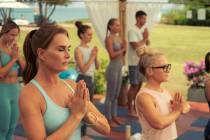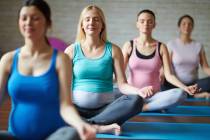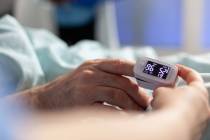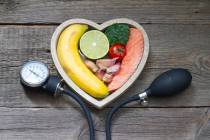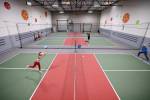Remember A-B-C-D-Es of surviving summer heat
Las Vegas has been off to a slow start this year with our hot summer weather. Although we are thankful for the early relief, we know it will soon be scorching.
Summer heat is no surprise in Las Vegas. It is a ruthless and even deadly problem. According to the Centers for Disease Control and Prevention, nearly 400 Americans die from heat waves each year, many of them older adults who don’t realize when they are in danger from overheating.
One reason that older adults are susceptible to heat-related illnesses is poor circulation, which is critical to the body for cooling. Deep body fluids with raised temperatures travel through the bloodstream to the surface of the skin for cooling. Poor circulation can obstruct this process. Additionally, individuals with poor circulation tend to feel cold in air-conditioned spaces. Reaching for a sweater when it’s hot out limits the body’s cooling ability. Older adults also don’t sweat as effectively. Sweating is an important mechanism that allows cooling as the damp skin dries. Although not a problem in Las Vegas, humid climates may prevent the surface of the skin from drying and therefore don’t cool the body.
Those at greatest risk for heat stress include people older than 65 and those who are overweight, have heart disease, dementia, diabetes or other chronic medical conditions. Certain medications are also affected by extreme heat, including diuretics and others prescribed for hypertension and Parkinson’s disease. Heat stress can result in five major illnesses: heat rash, heat syncope, heat cramps, heat exhaustion and heat stroke.
Heat rash is the mildest condition. It is a skin irritation caused by excessive sweating during hot, humid weather. The rash looks like a red cluster of pimples or small blisters particularly in the neck, upper chest, in the groin, under the breasts and in elbow creases.
Heat cramps can occur in individuals who sweat a lot during strenuous activity, causing a loss of salt and moisture in the body, especially in the muscles such as those of the abdomen, arms or legs. In addition to standard care for heat illnesses, individuals on a low salt diet or who have heart problems should seek medical attention.
Heat syncope, better known as fainting or dizziness episodes, usually occurs after a sudden rising from prolonged sitting or lying during high temperatures.
Heat exhaustion occurs when there is excessive loss of water and salt, usually through excessive sweating resulting in pale skin, extreme weakness, dizziness, shallow breathing, confusion and nausea.
Heat stroke, the most serious heat-related disorder, occurs when the body’s temperature rises rapidly (up to 106 degrees within 10-15 minutes), the sweating mechanism fails and the body is unable to cool down. Without medical attention, heat stroke can lead to death or permanent disability.
Heat illnesses are easier to avoid than they are to treat. So follow the A-B-C-D-Es:
A — Air-conditioned buildings are your friend. Spend at least some of your day in a cool, air-conditioned space such as a mall or theater.
B — Breaks should be taken in cool, shady areas regularly while outdoors.
C — Clothing should be lightweight, light-colored, loose-fitting and breathable (cotton, not synthetic). Wear hats that are loosely woven and don’t trap heat. They should also be broad-brimmed to cover the entire face.
D — Drink fluids frequently. If you are properly hydrated, you should never feel thirsty (e.g. one cup every 15-20 minutes). Avoid alcohol, iced coffee, soda and other highly caffeinated drinks, as they are dehydrating. Enjoy frozen treats with a high water and low sugar content, such as sugar-free Popsicles (make your own using juice) and eat fruit with a high water content, like watermelon.
E — Exposure to the sun or extreme heat should be minimal or completely avoided. Take a cool shower or bath or sponge bath.
Yes, June is here. When your chicken lays a fried egg, your seatbelt feels like a branding iron and your thermostat reads, “Are you kidding me?” it’s time to take extra precautions and stay cool. Look at the bright side: At least you can wash and dry your clothes at the same time.
Annie R. Lindsay is an associate professor and exercise physiologist at the University of Nevada Cooperative Extension. She conducts research and programming in adult fitness, physical activity, body image and childhood obesity prevention. Contact her at lindsaya@unce.unr.edu.











